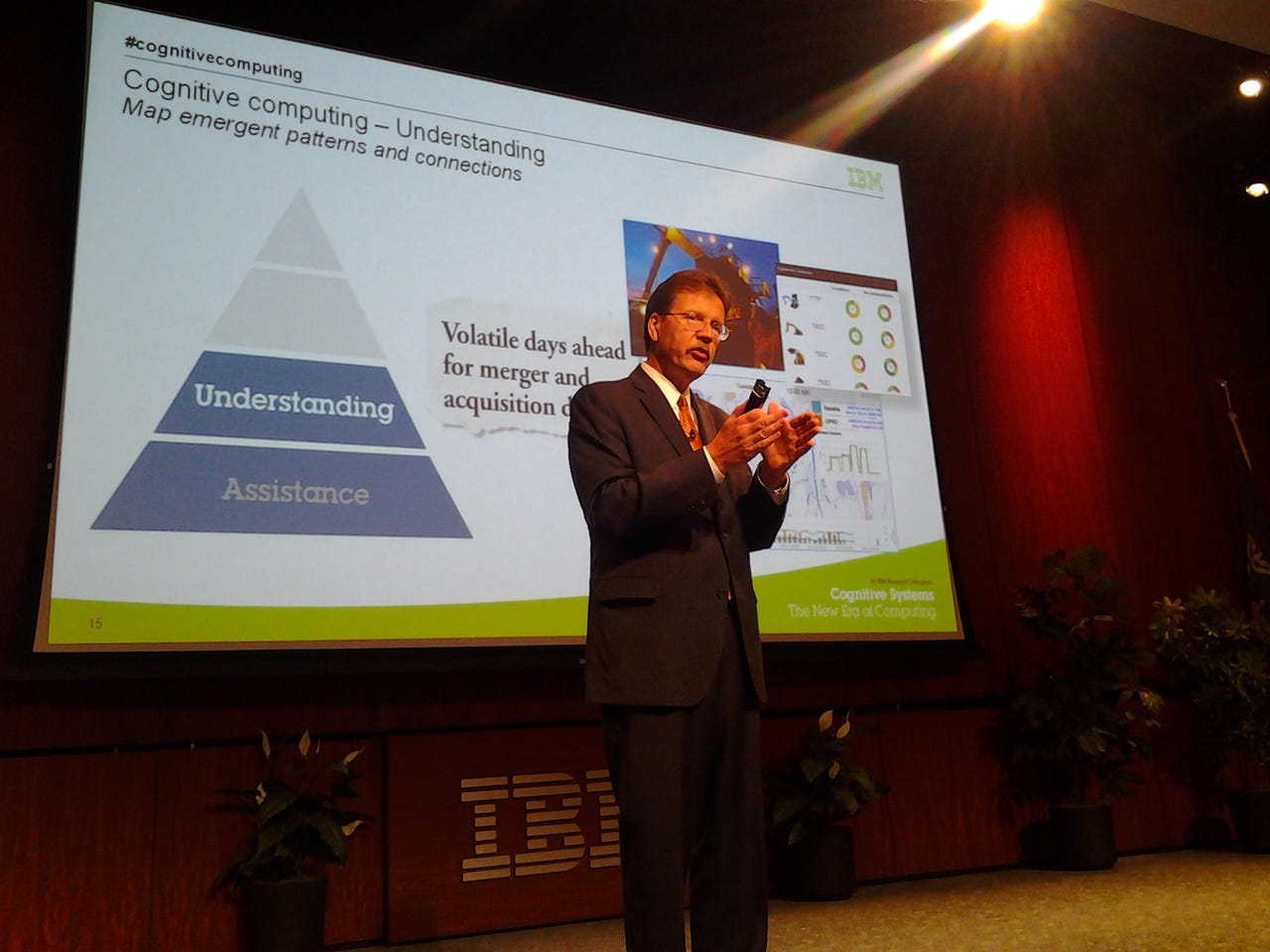IBM research stakes its future on cognitive computing


YORKTOWN HEIGHTS, NY—IBM began its colloquium on cognitive computing today with a jewel in the company's crown. Senior Vice President John E. Kelly took the stage following a video from January 14th, 2011—the day when IBM's Watson machine handedly beat Jeopardy champs Ken Jennings and Ken Rutter.
“I remember saying to the audience at that time,” recalled Kelly, “I don't know if we're going to win today. But it's only a matter of when not if a system like Watson is going to surpass human beings at this task. People asked, 'When did you realize how important this was?' I think I realized in the year coming up to this that this was really special. Something was really changing in the way that computer systems interacted with people—something very big beyond just a game show is occurring here.”
IBM Colloquium
So what is going on here? The world of data is now exploding, Kelly said, and machines like Watson have arose to provide us with better ways of harnessing this information.
“We are literally creating a digital universe,” he said. “And the way we have to process that is different than we've ever experienced before. What we were creating was a system that would be able to deal with portions of this tsunami of data coming at us. If we try to use first generation computing against this wave, it can't be done. So we need a whole different set of systems, extracting information from noisy data sources in order to come up with rational answers.”
Kelly broke down the history of computing into three eras. First, there was the the tabulating era, with early calculators and tabulating machines made of mechanical systems and later, vacuum tubes. “In the first era of computing we basically fed data in on punch cards,” he said. “There was really no extraction of the data itself, the data was just going along for the ride.”
Next came the programmable era of computing, which ranged in form from vacuum tubes to microprocessors. “It was about taking processes and putting them into the machine,” Kelly explained. “It's completely controlled by the programming we inflict on the system.”
And now, Kelly said, we are entering the era of cognitive computing, where computers can help us to unlock the insights that this new wealth of data holds. “If we don't make this transition,” Kelly argued, “the data will be too big for us to have any impact on it. I think that this era of computing is going to be about scaling human capability. The separation between human and machine is going to blur in a very fundamental way.”
Featured
Kelly says that following the Jeopardy victory his team at IBM has focused their energy on the area of medicine. “It's very clear to many people in the field,” he said, “that we're approaching a tipping point in healthcare. We're at a point where genomic data is available, and it's possible in fields like oncology to map the genome of a tumor. It's also now possible to access all the information in journals and databases. The problem is both sets of data are so massive, that by the time a human being can look at all of it you are dead.” Kelly explained that cognitive computing can allow access to this data in a time frame that is actually useful.
He also suggested applications for Watson-like technology for pharmaceutical companies. A machine can compile all the research available, and then identify where gaps exist. “The system,” he said, “can sort all known patent information and say your competitors are here, but no one’s looking over here. Go look over here.”
Kelly also stressed the importance of collaboration in IBM's cognitive computing efforts. The company today announced an academic initiative that will pair it with researchers at Carnegie Mellon, MIT, New York University and Rensselaer Polytechnic.
“This is no longer a game,” he said. “This is about unleashing a new form of interaction between man a machine. And unleashing a new power in that data we're generating.”